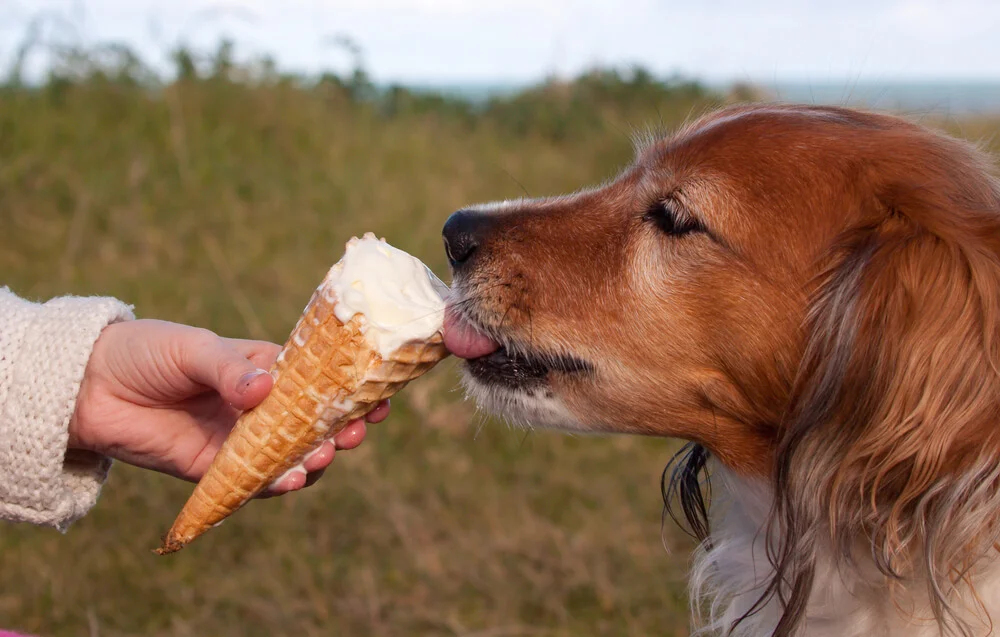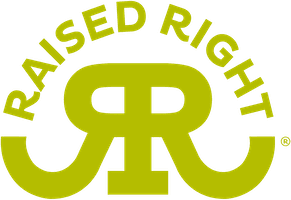
Allergies in dogs are extremely common and can result in skin disease, digestive upsets, or sometimes both. Dogs can suffer from food allergies, environmental allergies (which include allergens such as pollens, house dust mites, flea saliva, and animal dander), or sometimes both. If your dog has food allergies, choosing a suitable diet is one of the most important aspects of managing their condition. Read on to learn more about what foods are best for dogs with allergies.
What are the symptoms of allergies in dogs?

Itchiness is one of the most common symptoms of allergies in dogs.
Food allergies in dogs most commonly manifest as a skin condition, or as a digestive issue. In some cases, dogs can be affected in both of these ways.
Common symptoms of allergies in dogs include:
- Itchiness
- Paw chewing or licking
- Red, sore skin
- Hives
- Recurrent ear infections
- Swelling of the face, eyes, ears, or lips
- Vomiting
- Diarrhea
- Flatulence
- Sneezing
- Itchy or runny eyes
Many of these symptoms can also be caused by other conditions so it is important to take your dog to the veterinarian so that he can get the correct diagnosis. Allergies can be difficult to diagnose and a frustrating condition to manage but your veterinarian will work with you to manage your dog’s allergies.
What are the top food allergens in dogs?

Dairy products are among the most common food allergens in dogs.
The most common proteins dogs are allergic to are chicken, beef, and dairy. Dogs are less commonly allergic to lamb, pork, and fish. Some dogs are allergic to wheat, corn, potato, rice, and oats. While some food allergies are more common than others, this doesn’t mean your dog is allergic to these specific ingredients so make sure you perform an allergy test if your dog is experiencing allergy symptoms so you can be certain what the cause is!
What types of food are best for dogs with allergies?
Feeding a limited ingredient dog food is ideal for dogs with allergies because there is a reduced risk of an ingredient causing an allergic reaction. Let’s take a closer look at some dog foods that could help to manage your dog’s allergies. The recipes listed below were all formulated to meet AAFCO’s standards for a complete & balanced diet through using only whole foods so there are no synthetics vitamins & minerals in any of these recipes:
1) Raised Right’s Original Turkey Adult Dog Recipe
This recipe only contains 10 ingredients in total. The only meat protein it contains is turkey. With it being dairy-free & grain-free it’s a good option for dogs with a dairy allergy and is also suitable for dogs with an allergy to grains like rice, oats, barley, or wheat.
2) Raised Right’s Original Pork Adult Dog Recipe
This recipe only contains 9 ingredients in total. The only meat protein in the recipe is pork. It is also dairy-free and grain-free, so therefore it would be suitable to feed a dog with an allergy to grains, dairy, or meat proteins like beef & chicken.
3) Raised Right’s Turkey & Pumpkin Paté for Adult Dogs
This recipe also only contains 9 ingredients in total. The only meat protein it contains is turkey. Just like all of Raised Right’s recipes, this recipe is also dairy-free and grain-free. This means it’s also a good option for dogs with a dairy allergy, as well as for dogs with an allergy to grains.
4) Raised Right’s Pork & Pumpkin Paté for Adult Dogs
This recipe contains just 7 ingredients in total, which dramatically minimizes the opportunity for an allergy-causing ingredient. The only meat protein in the recipe is pork. This is recipe is both dairy-free and grain-free, making it a great option for dogs that are allergic to dairy or grains.
What are the benefits of limited ingredient diets?

Limited ingredient dog foods are often used in diet trials as a way of determining which ingredients your dog can safely tolerate.
Allergies can be very difficult to diagnose. If it is suspected that food allergies are the cause of your dog’s digestive upsets or skin condition, your veterinarian might suggest an exclusion diet trial to try and work out what your dog is allergic to. Limited ingredient dog foods are often used in diet trials as a way of determining which ingredients your dog can safely tolerate.
An exclusion diet trial involves eliminating any ingredients that your dog has previously been fed, which can sometimes be tricky, especially when many commercial foods contain huge numbers of different ingredients. Feeding your dog a limited ingredient diet can make this easier as it reduces the likelihood of an allergic reaction.
How do I choose a dog food for allergies?
The most obvious answer is to choose a food that doesn’t contain whatever your dog is allergic to. Hypoallergenic diets are often recommended for dogs with allergies because they often contain a limited number of ingredients. They are also typically grain-free and dairy-free.
Some dog foods that have lots of different ingredients can contain animal protein by-products that might not be specifically listed in the ingredients list. This can make it very difficult to be sure that you are eliminating a specific protein from your dog’s diet.
Summary
If you have a dog who has food allergies, it might be time to consider switching to a limited ingredient diet. If you are considering changing your dog’s diet, then remember to do it slowly and gradually over several days to prevent your fur baby from getting an upset stomach.
Frequently Asked Questions
What should I feed my dog with allergies?
Always be guided by your veterinarian as different dogs will have different requirements depending on what they are allergic to. It is important to try and eliminate the ingredients that your dog is allergic to and this can often be done by feeding a limited ingredient dog food.
What is the best food for a dog with itchy skin?
Itchy skin is often caused by a food allergy so eliminating whatever your dog is allergic to from his diet can help prevent itchy skin. Foods containing omega oils can be beneficial as these have been shown to help maintain a healthy skin barrier.
What foods to avoid for dogs with allergies?
Foods containing huge numbers of different ingredients should be avoided for dogs with allergies as there can be hidden ingredients not specifically labeled, particularly animal by-products. This can make it very difficult to be sure you are eliminating a specific protein from your dog’s diet.
What to add to dog food to help with skin allergies?
Skin supplements containing omega-3 fatty acids can help to reduce the symptoms associated with skin allergies by reducing inflammation and helping to maintain a healthy skin barrier. Some complete & balanced dog foods contain cod liver oil and flaxseed oil so supplementation likely wouldn’t be necessary if you’re feeding a dog food that already has these ingredients in their recipes.



